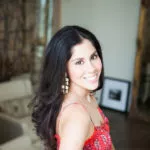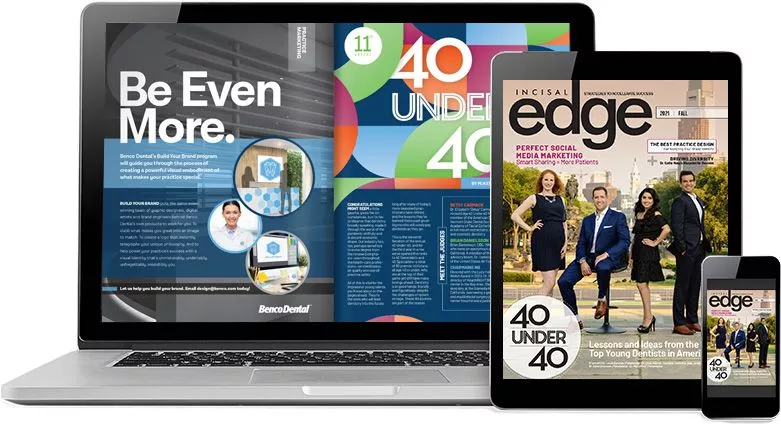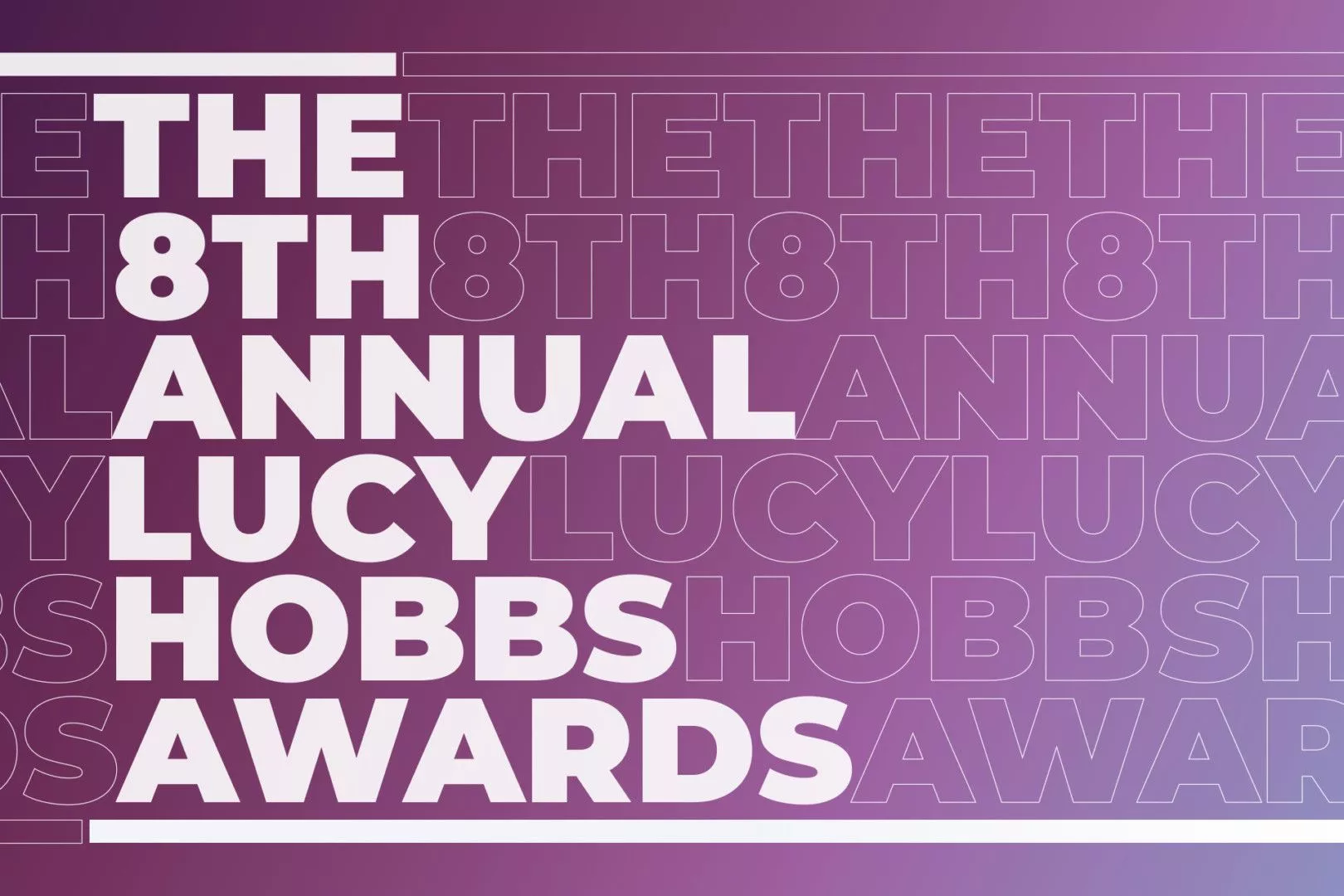
ABOUT LUCY HOBBS
BORN IN MARCH 1833 in upstate New York, Lucy Hobbs intended to pursue a career in dentistry from an early age—a thing that simply wasn’t done by a woman in nineteenth-century America. Shunted aside at nearly every turn, she persevered, in 1866 becoming the first American woman to earn a degree in dentistry, a professional discipline she practiced until her death in October 1910.
In 2013, Benco Dental inaugurated the Lucy Hobbs Project in her honor, celebrating the achievements of women in dentistry and working to empower them to drive further change. In this, the Project’s eighth year, that mission is more critical than ever, and Incisal Edge is proud each winter to recognize six women who best exemplify the timeless, inexhaustible spirit of Lucy Hobbs.
PAYING TRIBUTE TO SIX TOP WOMEN HELPING TO DRIVE DENTISTRY IN 2021.
A CENTURY AGO, American women finally secured the right to vote. Lucy Hobbs herself didn’t live to see the passage of the Nineteenth Amendment; her pioneering life had ended a decade earlier. But the spirit Hobbs exemplified throughout her career as the first American woman to earn a dental degree will never be extinguished.
It goes without saying that the past year was one of extraordinary tribulation for Americans across all walks of life. The pandemic has forever altered dentistry in ways both obvious and subtle. Yet one silver lining to that calamity was the recognition of innumerable professionals as truly “essential” to the proper functioning of society.
Those in our industry certainly qualify, and Incisal Edge is proud to do its part, for the eighth year running, to celebrate the achievements in particular of women in dentistry. The old proverb says “women hold up half the sky.” They hold up half of dentistry now as well, a share that will only increase as the years go by. And each of the half-dozen luminaries you’ll meet on the pages ahead are likewise lifting up the legacy of Lucy Hobbs in their daily work. Through times troubled and (one hopes) soon less so, their contributions are more vital than ever. Dentistry is immeasurably richer for their involvement—and the influence of Lucy Hobbs carries on.
STEPHENIE GODDARD
THE HUMAN RESOURCE
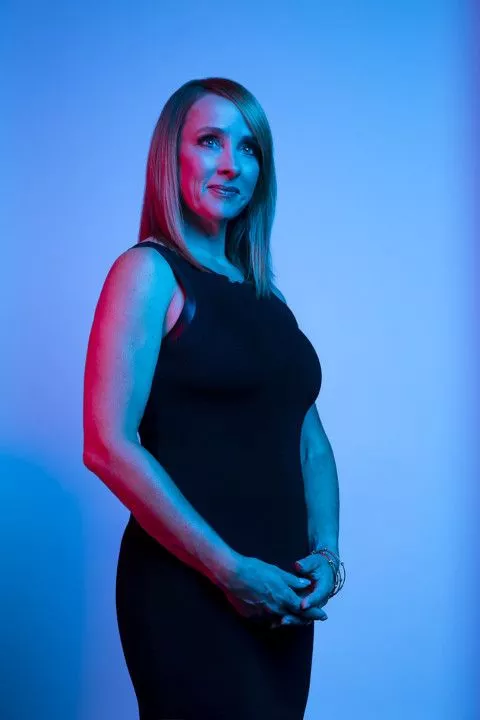 AGE: 50
AGE: 50
CITY: Newport Beach, California
AFFILIATIONS: Glidewell Dental
EDUCATION: MS, industrial and organizational psychology, San Jose State University
FOURTEEN YEARS AGO, when she started at Glidewell Dental, Stephenie Goddard was not exactly an industry lifer. Indeed, she’s no dentist at all—instead, she’s the resident organizational psychologist at Glidewell, with influence that extends well beyond supply-chain management and corporate strategy into leadership and mentoring.
Under Goddard’s guidance over the last decade and a half, the Southern California manufacturing giant launched Glidewell University, a 10-month leadership development program—an internal mini-MBA, in essence—for midlevel managers, as well as a six-month version for senior management. “I get personal joy and satisfaction watching people and their careers grow,” she says. “When I came to Glidewell, we didn’t have a learning program at all. We had 1,100 employees, and we kept hiring leaders from outside, while we had this amazing talent inside that just needed to be developed.” (Glidewell today has some 5,000 employees.)
Goddard comes from a human-resources and consulting background, having worked for several prominent financial firms at which both men and women were well-represented in the executive ranks. She was therefore surprised to find, early on, that on the business side of dentistry, it was mostly men calling the shots. Using her HR acumen and deeply ingrained passion for helping people grow professionally, she spent three years designing the Glidewell Guiding Leaders Program, a project to help female dentists develop leader-
ship skills, which debuted in March 2019.
From within that program, she selected 14 women from around the country to participate in a curriculum taught by elite leaders on subjects such as public speaking, business management, the noted DiSC behavioral-assessment test and more. “A lot of dentist friends would reach out to me with HR questions, and I realized that a lot of the problems they have [stem from the fact that] they’re great dentists but don’t have interpersonal or leadership skills,” Goddard says. “They don’t take a single leadership or accounting course in school, yet they’re a business owner.”
That first group of 14 have made friendships, supported one another and bought and built still more dental practices. “The program is really about creating new voices of influence,” Goddard says. “At the end, it’s about getting them up in the pulpit so they can become the opinionators.” Of those 14, one woman a month will be highlighted at Glidewell with a webinar showcasing her success story.
Goddard has also helped Glidewell launch LEAD (Leadership Experience and Development) and ELP (Executive Leadership Program), a pair of initiatives that have helped produce exceptional talent at all levels of the company. “Getting to watch that [development] , to watch people succeed and know I had some small impact on that, is the biggest gift in the world,” she says.
TO WATCH PEOPLE SUCCEED IN THEIR CAREERS AND KNOW THAT I HAD SOME SMALL IMPACT ON THAT IS THE BIGGEST GIFT IN THE WORLD.”
LISA SIMON
TWO-SPORT STAR
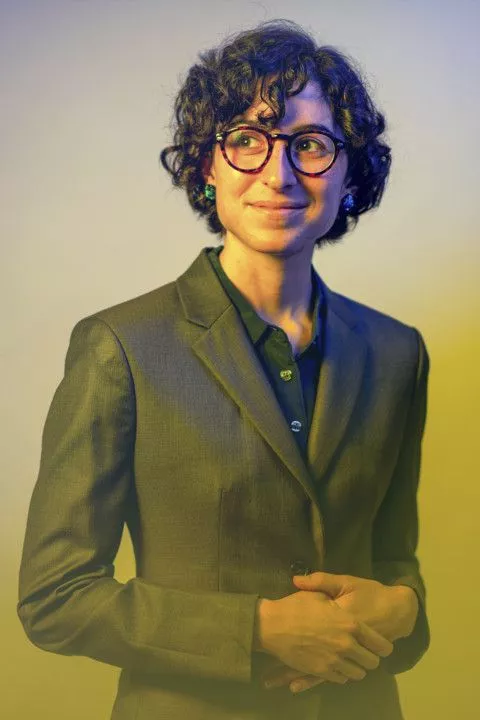 AGE: 32
AGE: 32
CITY: Boston, Massachusetts
AFFILIATIONS: Brigham and Women’s Hospital; Harvard School of Dental Medicine
EDUCATION: DMD, Harvard School of Dental Medicine; MD, Harvard School of Medicine
IT WOULD TAKE serious intellect and determination for any dentist, still just north of 30 years old, to have graduated from Harvard Dental; taught there; created a geriatric curriculum for predoctoral dental students and an oral-health curriculum for medical students; run a number of free clinics across Boston, her hometown; and earned a degree in family medicine from Harvard as well.
Say hello to Dr. Lisa Simon—if you can catch her attention as she works to support underserved populations and eradicate health disparities in New England and beyond. “Dentistry is at a crossroads,” she says. “We’ve been separate from the health-care system for a long time, and now we’re starting to have an acute understanding of the way that makes it harder for patients to get the care they need. It’s important to me to try to fix that source of injustice and suffering.”
Knowing she wasn’t interested in working in a traditional practice setting, Dr. Simon devoted her clinical hours to training in community health centers, including the Nashua Street Jail in Boston, where she’s now an adviser—it’s one of the most popular outreach clinics for Harvard Dental students—and supervises and teaches students to treat the incarcerated. She has also introduced dental treatment to the Crimson Care Collaborative, a student-run free clinic for the uninsured around the greater Boston area. “Community health is where my heart is,” she says. “A lot of dental care in private practices doesn’t deal with people in pain; it’s more about prevention. But I try to make sure students learn how to care for people who really need their skills, and see those people from all walks of life as people first. That continues to be very meaningful for me.”
Dr. Simon has also collaborated with a broad array of organizations including Health Care for All, Community Catalyst, the Pew Charitable Trusts and the American Dental Association, as well as published extensively on the need to address disparities in oral care. She centers her work on ensuring oral-health equality by integrating dental treatment with other aspects of medical care. Her own “dual identity,” she says, has enabled her to do research and participate in pilot programs that merge oral health and other medicine—such as including a dental hygienist as part of the hospital team for patients with diabetes, or embedding a nurse practitioner within a dental clinic. “I believe that the future of oral health lies in reuniting with the rest of medicine, and meeting our most vulnerable patients where they are,” this accomplished multihyphenate says. “In the emergency department, in the hospital and in their own homes.”
I try to make sure students learn how to care for people who really need their skills, and see those people from all walks of life as people first. THAt continues to be very meaningful for me.”
SARAH KHAN
ALL BUSINESS
 AGE: 34
AGE: 34
CITY: Lynnwood, Washington
AFFILIATIONS: Dentistry of Lynnwood
EDUCATION: DMD, University of Pennsylvania School of Dental Medicine
IT’S NOT EVERY DAY you meet a young dentist with as many accolades to her name as Dr. Sarah Khan, who plies her trade in Lynnwood, Washington, some 20 miles north of Seattle. A native of Pakistan, Dr. Khan attended the University of Pennsylvania’s dental school and graduated magna cum laude. That’s just the start of her educational proficiency and clinical excellence, however.
Dr. Khan is one of the leading female dentists in Washington state, attracting a broad variety of patients seeking implants and implant-retained dentures, thanks to her advanced surgical training. With the help of Benco Dental, too, she was early to implement Cone Beam technology in her practice. “I’m proud of being able to give patients a life change,” she says. “The kinds of procedures I do—taking all teeth out, placing them back and more—I feel like that’s a life-changing event for most people. Guided-implant surgery takes the stress out of placing implants and gives the clinician self-confidence in placing them.”
Having twice been named a “top dentist” by Seattle Metropolitan, Dr. Khan stays sharp via continuing education and maintaining the quality of her surgical skills. “When you’re a health-care provider, you continue to say you’re ‘practicing’ even if you’ve been in practice for 50 years, because indeed you’re literally always practicing,” she says.
To wit: In 2017, Dr. Khan was the only female dentist to attend Dr. Arun Garg’s Live Dental Implant Training Course in the Dominican Republic, and she has taken the majority of Spear courses with
Dr. John Kois at the Kois Center just down the road from her office. She was also accepted into Penn’s Wharton School, widely considered one of the finest business schools in the world, though she didn’t end up attending. “I have a deep desire to keep learning,” she says.
“I enjoy learning from the best and meeting people who want to change the world.”
Putting her head for business to excellent use, Dr. Khan was recently named CEO of a new mobile app—she can’t disclose its name just yet—that seeks to revolutionize dental care by making it accessible to patients who lack insurance. “Dentistry can be very insurance-driven, and people who don’t have insurance don’t know which providers to go to,” she says. “This app will be data-driven, allowing people to enter the service they’re looking for, then match them with providers.” Providers who—if their patients are lucky—are every bit as capable and forward-thinking as Dr. Sarah Khan.
NICOLE McGRATH-BARNES
HEALING HAND
 AGE: 55
AGE: 55
CITY: Lawrence, New Jersey
AFFILIATIONS: KinderSmile Community Oral Health Center
EDUCATION: DDS, University of Maryland School of Dentistry
AFTER DR. NICOLE McGrath-Barnes finished her residency at the University of Medicine & Dentistry of New Jersey (now Rutgers School of Biomedical and Health Sciences) in 1992, she became the program dentist to a Head Start initiative at Montclair Child Development Center in northern New Jersey. Her days there involved providing free dental services to children in families living below the federal poverty level, as well as leading age-appropriate oral-health workshops.
One day, her assistant called to say there was an African- American girl, just 5 years old, in their office with an emergency. The instant Dr. McGrath-Barnes arrived, the girl leapt into her arms. The doctor saw what looked big enough to be a golf ball on the lower interior of the child’s mouth—an infection that had been left to fester for several months. She was a Medicaid patient, and no other area dentist would treat her. Dr. McGrath-Barnes told the girl’s parents not to worry about payment, prescribed antibiotics and asked them to bring her back for an extraction in a week.
Little did she know this brief encounter would become the catalyst for her life’s work.
“That night I got home, fell to my knees and asked God, ‘What is it that you want me to do?’ My kid at the time was also 5,” Dr. McGrath-Barnes recalls. “That was when I realized my purpose in dentistry was to advocate for children and families who don’t have a voice or access to dental care in New Jersey. That is my path. Hands down. I know.” That night, KinderSmile Foundation was born.
Fewer than 9 percent of licensed dentists in the Garden State treat Medicaid patients, thanks largely to that program’s barrel-
scraping reimbursement levels. Dr. McGrath-Barnes’s KinderSmile Foundation, founded in 2007 as a registered nonprofit, is on a mission to boost those numbers by providing oral-care access and education to under- and uninsured children from birth to age 18, and perinatal mothers up to three years postpartum.
In 2016, KinderSmile opened its first brick-and-mortar dental home in Bloomfield, New Jersey. In 2019, it opened a satellite office in the Boys & Girls Club of Newark; late last summer, its third location, in New Jersey’s capital city, Trenton, debuted.
“You can have an undocumented child from Guatemala sitting next to a Medicaid patient from Newark, next to a private patient from Montclair, and not one of them would know [any of the others’] economic state,” Dr. McGrath-Barnes says. “They walk into an organized, well-run, professional environment, and we provide them with quality, comprehensive dental services regardless of their Zip code, color or status. This is my purpose and my legacy.”
I CAME TO REALIZE THAT my purpose in dentistry Is to advocate for THE children and families who don’t have a voice AND LACK access to care. That is my path.”
CAROLYN PRIMUS
A DENTAL EDISON
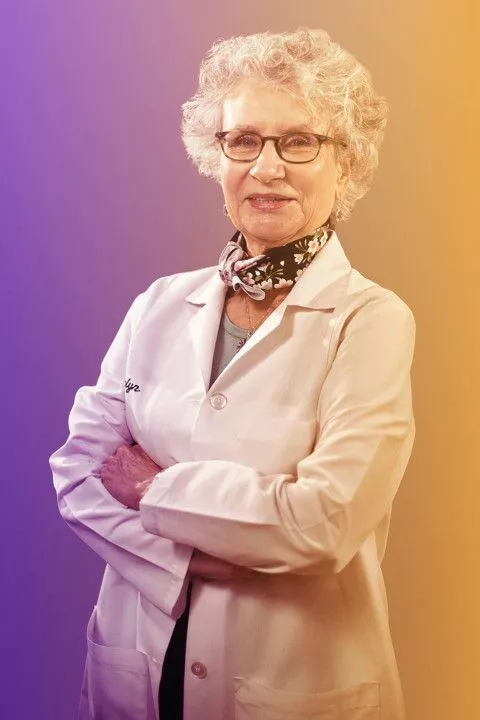 AGE: 67
AGE: 67
CITY: Sarasota, Florida
AFFILIATIONS: Primus Consulting
EDUCATION: Ph.D. in materials science and engineering, the University of California, Davis
WHEN DR. CAROLYN PRIMUS kicked off what would become her illustrious career, you could pretty much count the number of female engineers pursuing an advanced degree on one hand. But the good doctor took it to another level altogether by earning a doctorate in materials science and engineering from UC-Davis.
Her 40-year prowl through that professional discipline began with research into nuclear weapons and naval defense—of all small, insignificant things—but took a clinical and even humanitarian turn three decades ago when she joined Dentsply Ceramco to invent and help develop bioceramic materials for fixed prosthodontics.
In 1997, after working on more than 100 new products for direct restoratives and orthodontic bonding systems, Dr. Primus developed White ProRoot MTA and discovered the power of bioceramic materials as a force for good in dentistry.
More is on the way. “In the next few years, there will be increasing use of materials that interact with the body and are more reparative,” she says. “This is important, because every time you operate on a tooth you’re taking something away, and eventually the tooth can fail and people will need extractions, implants and more. The minimum we can do, with the most biological benefits—that’s the future.”
With that credo in mind and an impassioned drive to make high-quality bioceramics more affordable so more teeth can be saved worldwide, Dr. Primus hung out her own shingle, founding Avalon Biomed in 2010 with the help of a Small Business Innovation Research grant from the National Institutes of Health. “Unlike most dental materials, which are inert, [White ProRoot MTA] induced a remarkable healing effect,” she says. At Avalon Biomed, she invented and commercialized a product called NeoMTA Plus, which The Dental Advisor has named its Top Product in the Endodontic Reparative Cement category six years running, an achievement of which she’s justifiably proud. “I ended up selling it to more than 50 countries,” she says. “To me, that was important—to make it more available for dentists to afford.”
In 2016, Dr. Primus sold Avalon Biomed to NuSmile, where she remained as a consultant and acting director of new-product development. She released three additional new MTA bioactive ceramics—NeoMTA 2, NeoPUTTY and NeoSEALER Flo—in 2020, then retired last August. NuSmile’s mission includes making donations to underserved communities worldwide. Full-time work or no, after all, her restless intellect and scientific cast of mind will never cease to be an extraordinary asset for dentistry.
The minimum we can do to repair teeth, with the most biological benefits—that’s the future.”
RELLA CHRISTENSEN
CRITIC, ACADEMIC, LEGEND
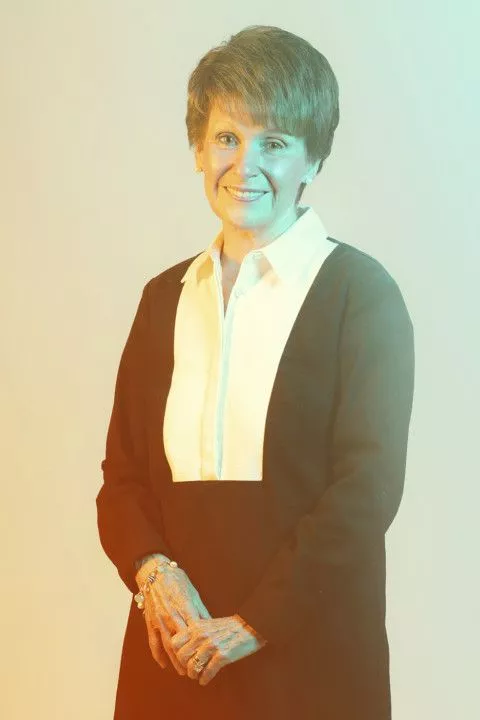 AGE: 81
AGE: 81
CITY: Provo, Utah
AFFILIATIONS: TRAC Research
EDUCATION: B.S. in dental hygiene, University of Southern California; Ph.D. in physiology, Brigham Young University
THERE ARE UNIQUE career paths, and then there’s Dr. Rella Christensen’s professional journey. It began in 1960 with dental-hygienist studies at USC, where she met her husband and longtime business partner, Gordon Christensen. In 1976, the couple founded the renowned Clinical Research Associates Foundation, and for 27 years Rella directed what became an iconic dental product-testing institute.
She also decided to pursue a doctorate in physiology with an emphasis on microbiology (the better to understand the oral cavity) from Brigham Young University, a degree she earned in 1980. Her Ph.D. firmly in hand, and having spent decades as a hygienist, she later shifted to a more academic focus, founding TRAC Research in Provo, Utah, in 2004 with her husband—and enjoying the “blessing,” as she puts it, of being able to study whatever strikes her fancy. (The company’s name stands for Technologies in Restoratives and Caries Research, and that gives a pretty good indication of what she’s interested in looking into.) “I’m not depending on outside funding or money, and that’s what has kept me motivated,” the ageless Dr. Christensen says. “I really enjoy the new things I constantly learn, and the smart young people I get to work with—it’s compelling.”
When the Christensens founded TRAC, Rella devised a mission statement and put it on the wall. It outlined five questions to which she and her research team would devote themselves. First, when should a tooth be cut? Second, how far should it be cut? Third, how should the surgical site be treated? Fourth, how should the prep site be restored? (“There are a lot of materials out there, but we’re asking if there’s something that could protect and support a tooth and make it so a tooth would never have dental caries again.”) And fifth, if the tooth isn’t cut, what can be done? “What we’re looking at here, 16 or 17 years later, is whether we can treat caries chemically and not cut the tooth at all, or very minimally, while still killing the microbes and stopping the disease,” she says. “We have some answers for those five questions. We wanted to know what lives in a caries lesion—not what starts a lesion, but what organisms live in it once it starts, and how we can treat it best. It’s been fascinating.”
Dr. Christensen has published studies in books and journals on a diverse array of topics including resin polymerization, disinfectants, tooth structure and more. She has published some 115 abstracts and been the lead scientist and author of more than 1,800 studies on dental products and techniques, as detailed through the foundation.
She’s bullish on the future, too. “There might be a perception that dentistry isn’t as exciting as it used to be, but the truth is it’s more exciting than ever. With all the new electronics and new ways to diagnose and treat, it’s an exciting time to be in health care in general,” she says. “In dentistry in particular.”
There might be a perception that dentistry isn’t as exciting as it used to be, but the truth is it’s more exciting than ever.”
CHRISTINA CATALANO
FOREVER FORWARD

CHRISTINA CATALANO does not accept the word no easily—a trait she shares with these awards’ namesake, as she acknowledges.
“What I love about Lucy Hobbs is that she tried multiple times to get into [dental] school and was denied. I love her attitude: ‘I’ll do it anyway. I don’t need to be accepted into this school; I’ll open a practice anyway,’ ” says Catalano, a Chicago-based Benco Dental Territory Representative who is the recipient of this year’s Trailblazer Award for her ongoing contributions to the Lucy Hobbs Project. “One of the true inspirations I get from her is that she had a goal, and figured out a way to do it. That’s a tremendous accomplishment.”
Catalano, who celebrated 19 years with Benco last October 1, cites the importance of the support and mentoring Hobbs received as she worked to prove a woman could be a dentist too. “I was brought up by successful, hardworking parents and taught that it doesn’t matter if you’re male or female—you work hard and get the job done.”
Catalano’s father, Bill McCormick, is the semi-retired owner of Heritage Dental Laboratories in Chicago, and he brought young Christina and her sister, Jennifer, into the lab to help out as soon as they were old enough to empty garbage cans. “We had jobs to do,” Catalano says, “and that was normal. Hard work was normal.”
The pandemic made it impossible for the Lucy Hobbs Project’s annual Celebration gala to go on in 2020 as planned, but the one held in Chicago in 2019, which Catalano was intimately involved in helping plan, was an enormous success. “ [The Celebration] was finally coming to Chicago, and I wanted to jump in,” says Catalano, who paired with Chicago dentist Dr. Vladana Babcic to drum up interest in the event and partner with the beneficiary organization, Let It Be Us, an Illinois nonprofit that focuses on the adoption and education of children in the state’s foster-care system.
Throughout her career, Catalano has received laudable internal support at Benco Dental, she says: “I never felt that being a female was an obstacle. It was a nice extension of my childhood, having been brought up that you can do whatever you want if you work hard.”
She’s sanguine about the ultimate effect of the pandemic on dentistry, predicting that ultimately, “the profession will come out stronger after this.” That’s what has driven her to continue her virtual participation in two Seattle Study Clubs—Windy City Seminars and Elite Dental Group—host hygiene events via Zoom and support her customers as they worked to reopen last summer.
“Nineteen years ago when I started this job, there were so few women in dentistry, but I’ve been able to see my career evolve along with the changing trends and increasing numbers of women. I’ve gone on that journey alongside so many of my customers who were young or associates back then,” Catalano says. “To see them advance and bring in women associates, that’s definitely exciting.”
I WAS BROUGHT UP TO BELIEVE THAT IT DOESN’T MATTER IF YOU’RE MALE OR FEMALE—YOU WORK HARD AND GET THE JOB DONE.”



